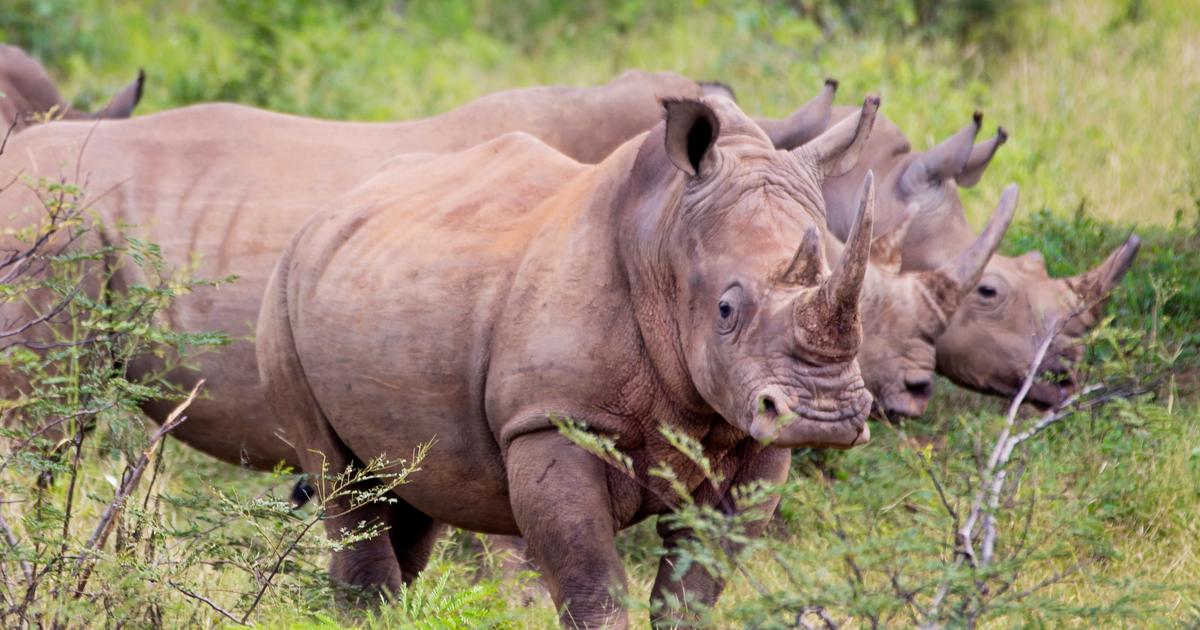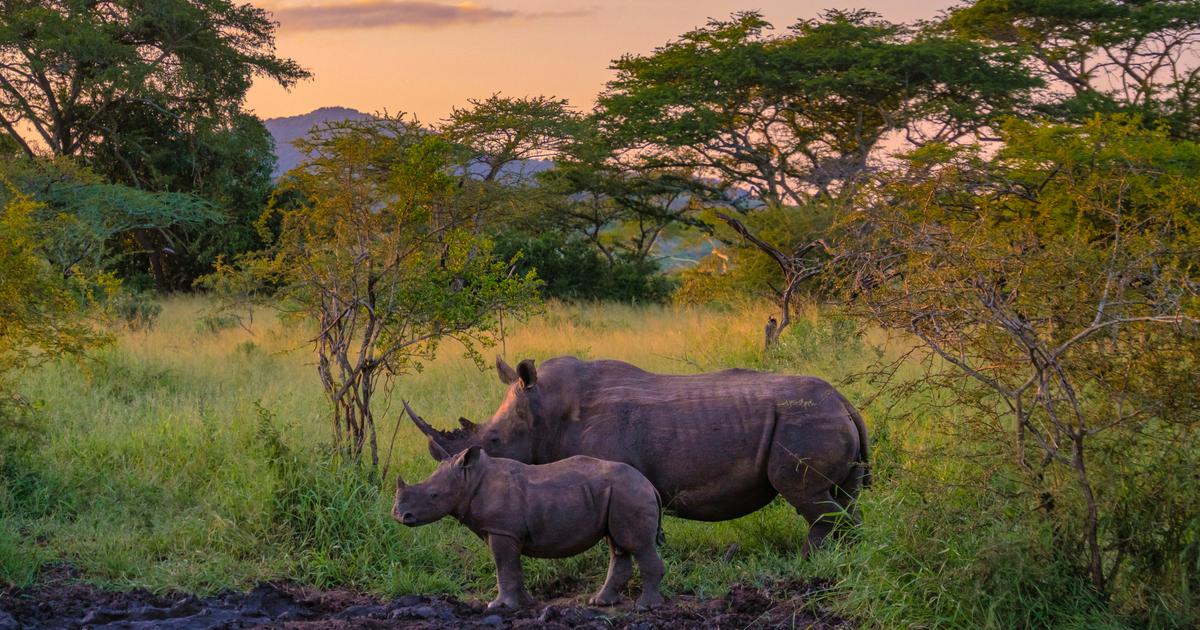It is an illusion to imagine that poachers soften the pedal because of the pandemic.
Not only has the hunt for wild animals not waned, but rhinos are increasingly targeted.
Rumors claim that their horn helps protect or heal from Covid-19.
To fight against this trafficking, a giant of the Russian nuclear industry had a surprising idea, to say the least.
According to the Robin Hood environmental association,
which echoes this, the company Rosatom proposes "to inject into the horns of rhinos stable and long-lived radioactive substances capable of being detected by monitoring devices installed in ports and airports".
To read also These animals which disappear from the planet: the "SOS for nature" of the WWF
In the private reserve of Buffalo Kloof, near Port Elizabeth in South Africa, the NGO affirms that "two rhinos have just served as guinea pigs for this initiative".
“For three months, adds the association, the two rhinos, one of which was nicknamed Igor in tribute to Igor Kurchatov, pioneer of the Soviet atomic bomb, will be the subject of radiological monitoring to study the behavior of Radioactive isotopes and their possible migration into the body and organs of animals.
"
"An operation of marketing and atomic diplomacy"
This experience makes the hair of Charlotte Nithart, specialist in animal trafficking within the French NGO, stand on end.
"It is not known if there will be a long term impact on the health of these animals and, even if it is not the case, this technique will not be effective in the fight against poaching, because the traffickers bypass the checkpoints.
Moreover, the ports from which container ships are exported to Asia are veritable sieves.
"
Rosatom, it intends in any case to extend this radioactive marking to other endangered species and highlights the fact that "nuclear science will play a fundamental role in the protection not only of the rhinoceros, but also of our planet by general ”. A speech which does not convince Charlotte Nithart: "On behalf of a company which supplies enriched uranium to South Africa and tries to weave its web in Africa for ten years, it is above all a marketing and atomic diplomacy operation aimed at gaining a better foothold on the spot and forging links ”.
Rosatom has found a new way to extend its influence in Africa by injecting rhino horns with radioactive substances that can be detected by monitoring devices at ports and airports.
https://t.co/uedOP51NiK#braconnage #wildlife pic.twitter.com/VM1lhNvDDy
- Robin Hood (@robindesbois_tw) May 20, 2021
This is not the first time that surprising experiments have been carried out in an attempt to protect rhinos.
"As early as 2010, similar and short-lived attempts were made in South Africa to deter poachers and consumers by injecting the horns of rhinos with so-called indelible dyes and toxic chemicals," recalls Robin Hood.
While the kilo of horn can be negotiated under the cloak between 30,000 and 50,000 euros by Asian buyers who wrongly attribute to it aphrodisiac or healing powers, some African animal parks have decided to bark their rhinos.
"But it is a heavy operation which requires general anesthesia of the animal and as the horn grows back 4 to 7 cm per year, it would have to be cut almost every year to keep poachers away," explains Charlotte Nithart.
However, we have seen that certain traffickers did not hesitate to attack young specimens which have only a few centimeters of horn.
"
Twelve years in prison
Today there are only 20,000 rhinos in Africa, of which around 15,000 are in South Africa. A country where last year 394 rhinos were poached. The peak was reached in 2014 with 1215 animals killed. "Before the launch of rumors about the healing power of the horn against cancer, there were 13 poachings per year in 2007," recalls Charlotte Nithart. There is no miracle solution to fight against traffickers, apart from putting more resources on the ground, carrying out more checks and arresting gang leaders, because it is often the small poachers in the area who are condemned. "
If the number of rhinos slaughtered has declined in recent years in South Africa, it is precisely because the fight against poaching has intensified and the surveillance of reserves has improved. With the key to very strong penalties for those who attack animals. Like the one inflicted last May on a man who poached a rhino in 2014 and who has just been sentenced to twelve years in prison.





/cloudfront-eu-central-1.images.arcpublishing.com/prisa/BCB6MJLFNJFHTOKKFRCSCPHTFQ.jpg)








